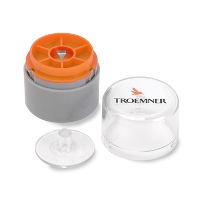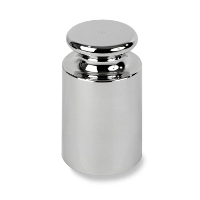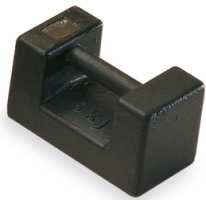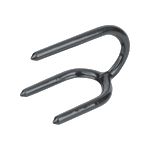More about Weights
The validity of the weight used to check a balance is of critical importance, so we always recommend you use a UKAS certified weight.
We only offer UKAS weight calibration through our own in-house metrology laboratory based in Oxford.
Having a UKAS certificate guarantees that correct calibration procedures have been followed and that traceability chains back to the international kg are documented and verified. Our ability to offer UKAS certification is independently audited by UKAS – United Kingdom Accreditation Service.
It is possible to purchase weights with “standard” or “ISO” certification. Providers offering this service have not been audited or approved by a third party, so there is no guarantee as to the validity of the certificate. Note even certification issued by an ISO9001 accredited company is not a guarantee of the validity of a certificate since the organisation is not audited specifically on their technical competence to perform the calibration or the traceability chains back to the International kg verified.
Weights are necessary for the following applications:
Calibration: To assess the performance of the balance or scale and prove traceability back to National and International standards. It is necessary to calibrate the instrument using a certified calibration weight.
Adjustment: It is possible that a balance or scale may stop weighing accurately. When this occurs it is necessary to correct this error by activating the adjustment routine on the instrument and then apply a certified calibration weight to perform the correction.
Check: Balances and scales should be checked to ensure the calibration has not drifted and it is still weighing accurately. This is a routine process that should be carried out on a daily or before use basis. For more information on checking weighing equipment please see our How to Check a Weighing Balance or Scale article.
This very much depends on how you will use the weights, and the specification of the balance or scale. However as a rule of thumb you can use the following:
E2 Class Weights: Analytical Balances (0.1mg readability and more accurate).
F1 Class Weights: Milligram & Top Pan Balances (0.1g and more accurate).
M1 Class Weights: Compact Balances and Industrial Scales (1g and less accurate).
For more information please see our weight buying guide.
This depends on the application you are using the weight for.
For test purposes, as described above, we recommend a weight at approximately the capacity of the balance/scale. As well as a weight which matches the capacity where you most typically weigh at on the balance/scale, to perform the daily or before use check.
To perform a monthly linearity check, select 3 – 4 test points which cover the full range of the instrument.
For more information please see our weight buying guide.
Weights are quite often referred to as calibration, test or scale weights. However there is no such thing as a specific calibration, test or scale weight. These are applications you may use a weight for, there are no weights made inherently for this purpose. When selecting weights you use your application to determine what tolerance you require and then use that desired tolerance to choose the required weight class.










